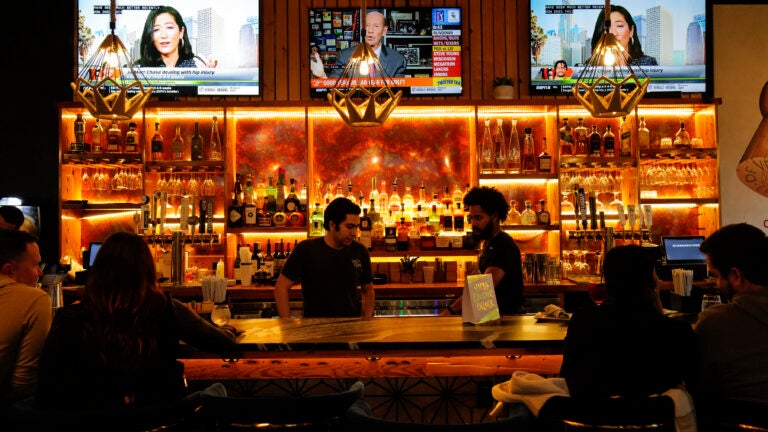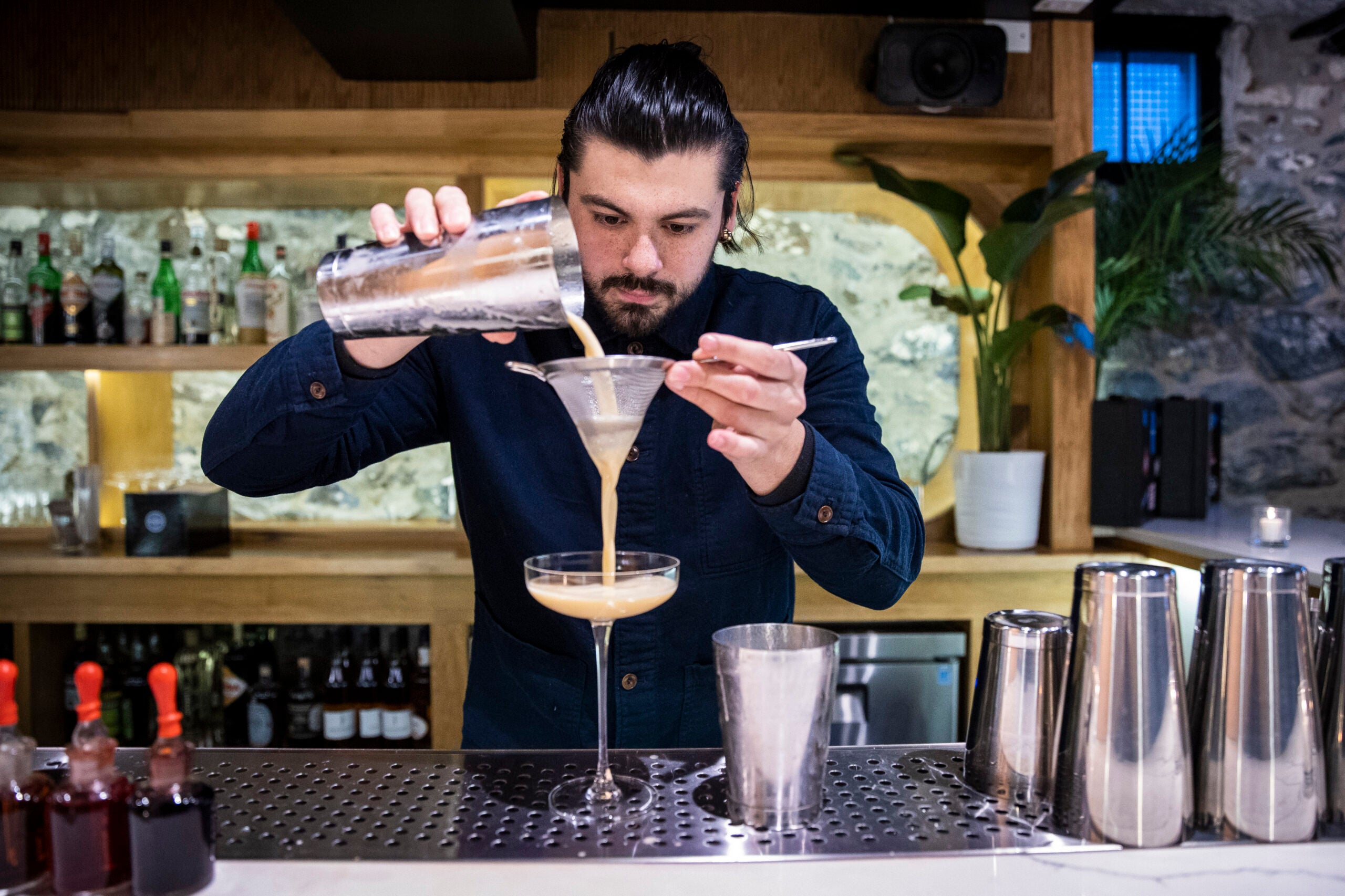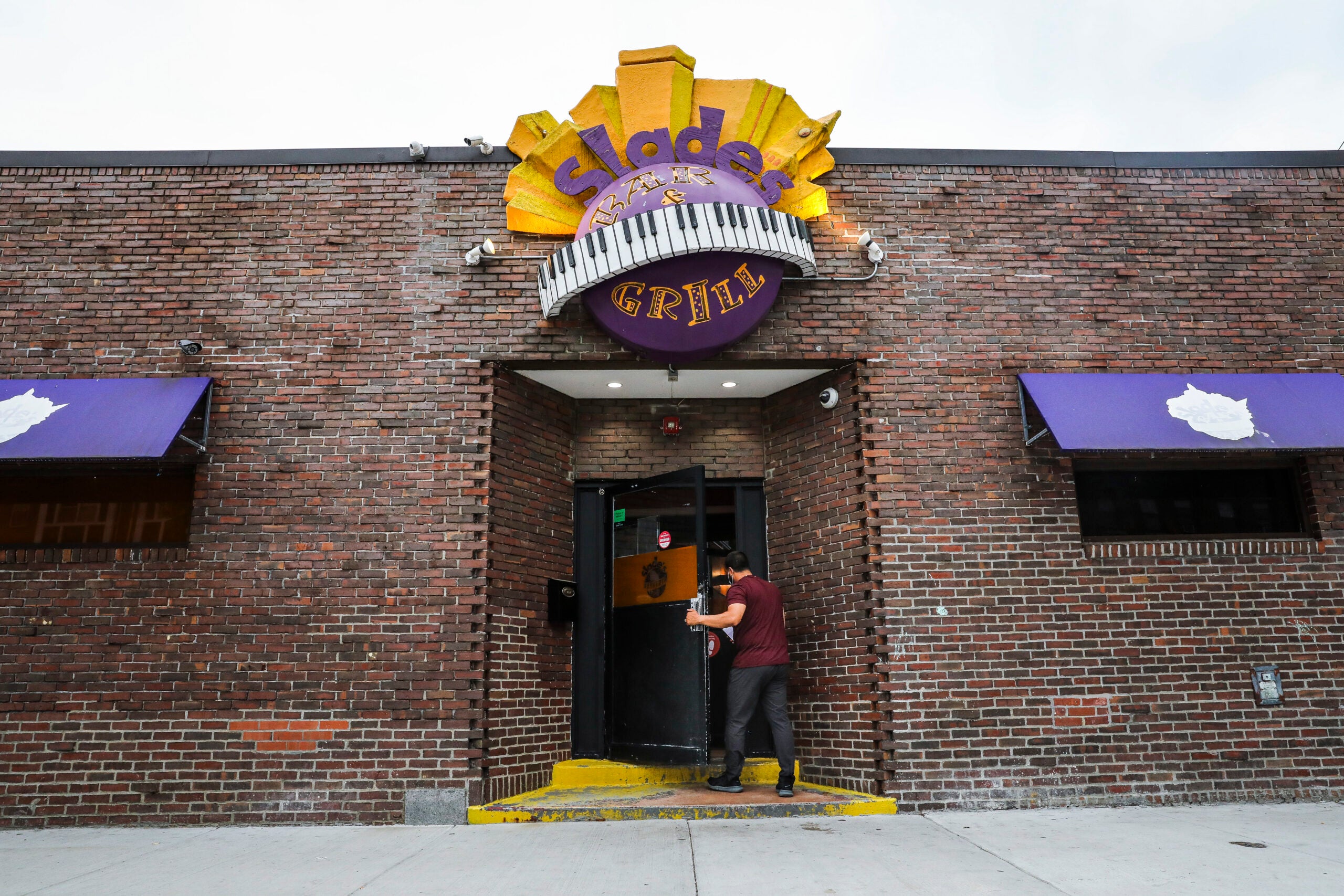Boston wants 250 additional liquor licenses. Here’s why it needs state approval first.
Local News
It’s thanks to lawmakers from 1933 that it’s so notoriously difficult to get a liquor license in Boston.

Boston officials are waiting for legislators to decide if the city can bump up the number of liquor licenses it holds, the first time such a big increase could occur since 2014.
The bills, H.3741 from state Rep. Christopher Worrell and S.2380 from state Sen. Liz Miranda, want to build up communities that don’t experience the level of foot traffic as Boston’s bustling central neighborhoods — the same neighborhoods that hold a large concentration of the city’s capped liquor licenses.
“It is those neighborhoods that are often home to lower-income residents, residents of color, where there are hardly any sit-down restaurants, if any at all,” said Mayor Michelle Wu during a Consumer Protection and Professional Licensure Committee hearing on the bills earlier this month. She was joined by the City Council, restaurateurs, and residents in support of the bills.
Of the more than 1,000 liquor licenses in Boston for restaurants and clubs, they are heavily concentrated in neighborhoods like Back Bay and the Seaport, between 60 to 90 licenses per neighborhood. In communities like Roxbury, Mattapan, and even parts of Boston’s biggest neighborhood, Dorchester, some have a couple dozen, while others have a measly handful of liquor licenses.
There’s more to the inequity of liquor licenses in Boston than just where the licenses are, and who has access to them, but why. With these bills, Miranda, Worrell, and Boston city officials are setting out to course correct when it comes to Boston’s antiquated cap and how liquor licenses are given out — through the city and on its private market.
Why is there a cap?
Boston’s liquor laws date back to a 1933 prejudicial decision from a mostly Boston Brahmin state Legislature who worried Boston’s majority-Irish City Council would allow too many watering holes to open in the city. At the time, the cap was just under 1,000, according to Boston magazine.
Boston is the only municipality in the commonwealth that must abide by a liquor licensing cap.
Only in the last couple of decades and after much politicking have new licenses been added to the cap.
U.S. Rep. Ayanna Pressley was able to get an additional 150 liquor licenses for Boston in 2014 during her time as a city councilor. Before then, the only other time the city received additional licenses to dole out was in 2006.
“I really want to give a nod to her because her work that she started was a good first step,” Miranda said.
Since 2014, city officials have tried to gain more licenses, but failed. The current total of liquor licenses falls around 1,400, but that also includes liquor stores and licenses given to bars at the airport. It also includes full liquor licenses and licenses that only let businesses serve wine and beer. The number of on-premise licenses for restaurants and bars may be closer to 1,100.
Because there’s a cap that has barely budged in size since post-Prohibition, that means there usually aren’t many (or any) licenses available. What’s even more confusing is that business owners can still get approved for a license.
“Getting approved is not the same thing as being given a license,” said Thien Simpson, Hyde Park’s Main Streets executive director. “You (can) get approved, but if there’s not a liquor license available, you just don’t get it.”
How do restaurants and bars open?
Business owners are allowed to purchase liquor licenses from other businesses that may have closed or are no longer using it for whatever reason — but they better come with deep pockets.
That’s because many of Boston’s liquor licenses are transferable — and it’s often the only way a new business that wants to open and serve alcohol can do so.

And because licenses are limited, it can drive up prices to exorbitant amounts. Licenses to only serve wine and beer can sell up to $250,000 in the private market, according to reports.
Want to serve liquor, too? That’ll cost you even more, sometimes as high as $600,000.
“You’re spending over a half a million dollars in your investment or your dream, to open up a bar or restaurant, just on the license, when you don’t know how your business will do,” Miranda said.
How will the bills fix these issues?
Adding more licenses — five for each of the neighborhoods selected, or 50 total, in one year, equaling 250 over five years — doesn’t completely solve the issue of the cap, but it gives more businesses an opportunity to get a license from City Hall over spending big bucks in the private market.
Robert George, the executive director of Roxbury Main Street, is responsible for revitalizing Roxbury’s commercial district, Nubian Square. In and around Nubian Square, there are a handful of restaurants and bars with liquor licenses, most of them from the neighborhood restricted allotment, according to data from Analyze Boston.
The restricted licenses helped neighborhoods like Roxbury before, but it still isn’t enough, George said, who added that Roxbury can’t generate anywhere near the foot traffic seen in other Boston neighborhoods because of its few licenses. It hurts other businesses, too.
“If they’re coming to the district and enjoying themselves, they eventually circulate in that neighborhood,” George said. “Next thing you know they’re going to the clothing stores, the grocery stores. Those entities help to circulate the dollars in the community.”

Besides Roxbury’s 02119 and 02121, the other zip codes that would get these licenses include Dorchester’s 02122, 02124, and 02125; Mattapan’s 02126; East Boston’s 02128; Roslindale’s 02131; West Roxbury’s 02132; and Hyde Park’s 02136.
The sponsors of the bill said most of these zip codes also have a majority of residents who make below Boston’s median household income, most have a majority-minority population, and a significant number of residents are immigrants.
Out of the five licenses each neighborhood would receive every year, Miranda said three of those licenses would allow a business to serve all liquor, and the other two would be just for beer and wine.
Another big part of these bills is that the 250 licenses would be non-transferable, meaning they couldn’t be sold on the private market.
If a business closes or no longer needs the license for whatever reason, it would go back to City Hall, so that they can give it out to another business in the same zip code.
What’s next?
State lawmakers asked the city to come back with data that shows what happened the last time more liquor licenses were added. At this time, it isn’t immediately clear when the city will provide that to lawmakers, and when the bills will be heard again before the end of the legislative session in summer 2024.
These bills certainly face some barriers between now and the end of the session. Miranda said the biggest criticism she’s heard has been that the number of 250 additional licenses is too high.
“Folks are saying, ‘What if we do less?’” Miranda said.
And there’s the same criticism that has existed every time new bills have looked to expand the cap: More liquor licenses in circulation means the current ones that business owners bought for hundreds of thousands of dollars hold less value.
Nick Korn with OFFSITE, a group that helps with professional development in the restaurant and bar industry, said prices on licenses rose after 2014 despite additional licenses approved that year.
But what the bills’ supporters hope skeptics realize the most is just how difficult it is to open a restaurant — and keep it open — without a liquor license.
“Food is only one part, sometimes less than half of the equation,” Wu said. “It is really that alcohol license that can make the difference in terms of profit margins to keep those doors open for restaurants and for community members to benefit from them.”
Tell us: Would you support a bill expanding the number of liquor licenses available in Boston?
Newsletter Signup
Stay up to date on all the latest news from Boston.com